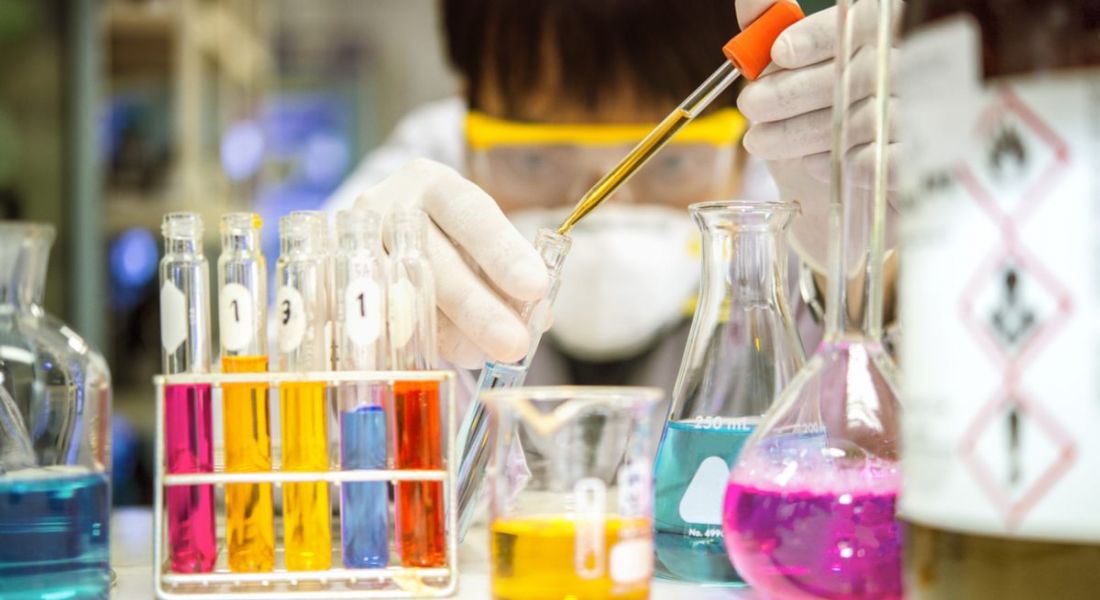For those finishing their science degree and wondering what to do next, DCU’s Greg Foley takes us through five different types of scientist.
There’s a wonderful scene at the end of the movie Finding Nemo, in which Nemo and his motley crew of rescuers are bobbing in the harbour, enclosed in water-filled plastic bags, having escaped from the clutches of the evil dentist. One of the fish comes up with the now classic question: “Now what?”
It is quite likely that many final-year science students are asking themselves the ‘Now what?’ question as the exams beckon and they see their time at college running out.
At the same time, parents of school-leavers are probably having similar thoughts as CAO time approaches: just what are you if you complete a degree in one of the sciences?
The thing about science is this: there is no simple answer to the ‘Now what?’ question. It’s not like medicine or law or even engineering where students have a pretty good idea what they will be doing when they graduate.
Yes, some science graduates go on to work ‘at the bench’, in research laboratories in universities and companies. They wear the white coat, the safety glasses, maybe a pair of purple safety gloves, and they spend their days on their feet doing experiments.
Most of this group of graduates will have caught the scientific research bug and will pursue a PhD, a sort of four-year apprenticeship in how to do scientific research as opposed to simply acquiring scientific knowledge.
But there are many other outlets for science graduates. Here are just five types of scientist that don’t fit the normal stereotype of the white-coated ‘lab rat’.
The producer
We all know about how scientists make discoveries – new drugs, for example. But, for such discoveries to be of any benefit to humankind, they usually need to be scaled up.
It is no good being able to produce micrograms of a new wonder drug. You need to be able to produce thousands of kilograms of it and to do this, you need process plants (factories).
In these plants, you’ll find scientists and engineers working together with the simple goal of making large amounts of product, consistently and economically.
These are the producers and they are people who can work well in teams, who are prepared to work irregular hours and who cope well under pressure. They are adaptable and good at thinking on their feet.
The quality controller
The quality controller or validation specialist may work in a production environment but may also work in a service provider, such as a medical testing company or a consultancy that offers quality or validation services to companies.
Employees in the quality sector might work at the bench, just like the research scientist. But, unlike research, where creativity and originality is highly valued, quality demands attention to detail, consistency and a methodical mindset.
Other employees in the quality area, and especially employees in the process validation sector, will spend their time doing paperwork, working with data, writing reports, making sure regulations are being followed, and making sure that excellence and safety is maintained at all stages of the process.
The regulator
We live in a highly regulated world, and everything from the safety of new drugs to the consistency of manufacturing processes themselves to waste disposable is regulated, often by third parties, such as the Food and Drugs Administration (FDA) in the US, the Environmental Protection Agency or the Food Safety Authority.
Many of the employees of organisations such as these are science graduates. Some will apply their science learning on a daily basis – they might do the actual monitoring that is required by law.
Others will work in the area of policy development; writing new regulations, proposing new strategies, making predictions about future trends.
These will be people who know their science but also have a flair for writing and general communication.
The educator
More than ever, the world needs science and mathematics educators. Whatever the level, the ability to teach a subject depends on having a deep knowledge of that subject. As the world becomes more and more dependent on technology, we are going to need more and more teachers and lecturers with a deep knowledge of science and mathematics.
For science graduates, the move sideways into education requires further training – two years to become a secondary school teacher – but it is a move that leads to a highly rewarding career that could last a lifetime.
The defector
The defector (and, of course, this is a tongue-in-cheek term!) is the graduate who decides to move out of science into an entirely new area. Science graduates are to be found (and increasingly so) in areas as diverse as business, finance, sales and marketing, communications, and journalism.
Wall Street, for example, is teeming with mathematicians and theoretical physicists (the ‘quants’) who apply their mathematical skills to the world of finance.
Most defectors don’t use their scientific knowledge every day but, by studying science, they will have acquired a whole range of skills that employers find attractive – skills such as work ethic, numeracy, writing skills, oral communication skills, the ability to work in teams, a logical way of working based on following the evidence and perhaps even a knack for thinking outside the box.
These are just five examples of workplaces in which you will find scientists, but there are many more. You will find scientists throughout the public service, in every department of government, applying their scientific knowledge and using the skills they acquired as science students.
And, increasingly, you’ll find that science graduates are forging their own path as entrepreneurs, setting up new companies making everything from medical devices to apps to diagnostics.
Of course, it is worth remembering that it’s not all about work. At the end of our working day, we go home and we live our lives. And, the more science we know, the more sense we can make of what is an increasingly confusing world.
By Greg Foley
Greg Foley is an associate professor at the School of Biotechnology in Dublin City University.




